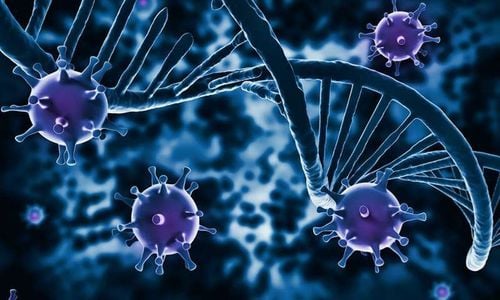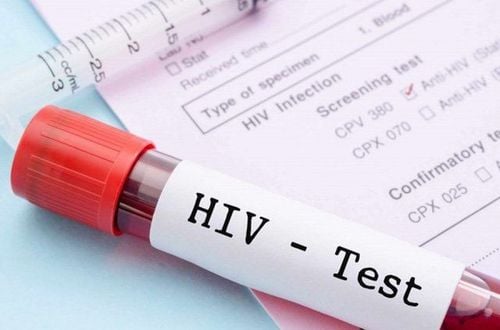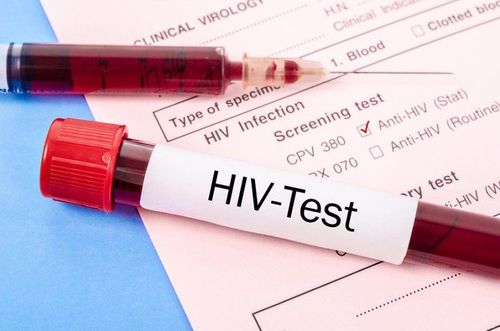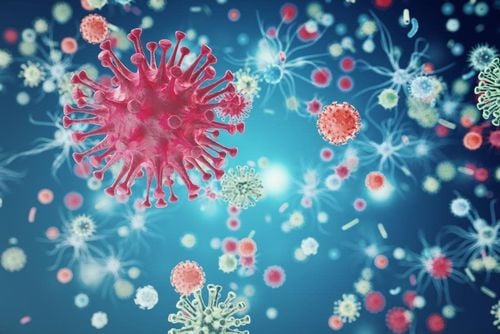This is an automatically translated article.
HIV is considered a "disease of the century", seriously affecting the health and life of patients. The HIV virus weakens the body's resistance and causes severe complications. The following article will provide information about the window period of HIV.1. What is the window period for HIV?
As soon as you are infected with HIV, the virus that causes the disease will begin to reproduce in your body. The human immune system responds to antigens (parts of a virus) by producing antibodies (cells that fight the virus).
HIV window period is the time between exposure to HIV (the virus enters the body) until HIV is detected by tests. Most HIV antibodies develop within 23-90 days of infection.
During this time, an HIV test will give a negative result even though the patient is indeed infected. They can still transmit the virus to others during the window period. If you suspect you have been exposed to HIV but test negative again, you should have further tests in a few months to confirm (time depends on the test used). And during this time, you need to use condoms to prevent the possibility of HIV transmission.
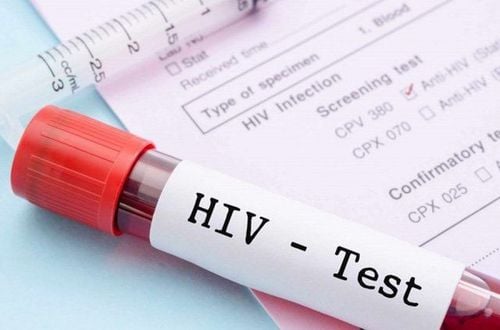
Trong giai đoạn cửa sổ của bệnh, xét nghiệm HIV sẽ cho ra kết quả âm tính
2. How long is the HIV window period?
The window period varies from person to person, and also varies depending on the type of HIV test. Most HIV tests are antibody tests. It takes time for the body to make enough antibodies for an HIV test to determine if a patient has been infected with HIV. Three weeks is the earliest time for an antibody test to detect an infection. But not everyone can detect the development of antibodies early, which takes about 3-12 weeks after infection.
At the end of the window period, the amount of antibodies will be so high that HIV infection can be detected by conventional blood testing methods. That is, the sera has changed from "negative" to "positive", this is also called the "seroconversion" stage. This stage can last for 5 years, 10 years or even longer depending on the patient's condition.
Trắc nghiệm: Bạn có phân biệt được chính xác cảm lạnh và cúm mùa?
Cảm cúm và cảm lạnh là hai khái niệm mà chúng ta thường đánh đồng nó giống nhau, không phân biệt rõ ràng. Dưới đây là một số câu hỏi trắc nghiệm, giúp bạn có thêm những kiến thức phân biệt cảm lạnh và cảm cúm. Từ đó, có những biện pháp điều trị bệnh phù hợp.3. Early Symptoms of HIV
The first few weeks after a person becomes infected with HIV is called the acute infection phase. During this time, the virus reproduces rapidly. The body's immune system responds by making HIV antibodies - these are infection-fighting proteins.
During the first weeks, some people may not have certain symptoms. However, many people experience symptoms during the first month or two after contracting the virus, but often do not realize they have been infected with HIV. This is because the symptoms of the acute phase can be very similar to those of the flu or other seasonal viruses.
Early symptoms of HIV may include: Fever; Chills; Swollen lymph nodes; General aches and pains; skin rash; Sore throat; Headache; Nausea; Stomach pain; Always waking up in the middle of the night, sweating profusely; Yeast infections; Weight loss; Diagnosis of meningitis.
Because these symptoms are similar to common illnesses like the flu, the person who gets sick may not think they need to see a doctor for a checkup. And even if they go to the doctor at this time, the doctor may just say you have the flu or mono and may not even consider HIV.
Whether people with HIV have symptoms or not, during this stage their viral load is very high. Viral load is the amount of HIV found in the blood. A high viral load means that HIV is very contagious during this time.
Initial HIV symptoms usually resolve within a few months as the person enters the chronic or clinical stage. This phase can last for many years with treatment.
4. AIDS stage and symptoms
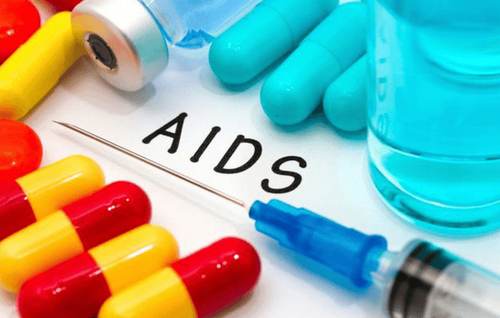
Những người nhiễm HIV có thể phát triển thành AIDS nếu HIV của họ không được chẩn đoán sớm
People with HIV can develop AIDS if their HIV is not diagnosed early. This is the final stage of HIV infection, the amount of antibodies in the body will decrease sharply, whereas the amount of HIV increases rapidly. Then the immune system is completely weakened and people infected with HIV will progress to the AIDS stage with conditions of opportunistic infections and cancer leading to death.
Symptoms of AIDS may include: Recurrent fever; Chronic swollen lymph nodes, especially in the armpits, neck, and groin; Fatigue for a long time; Night sweats; Dark pigmentation under the skin or inside the mouth, nose, or eyelids; Sores, spots, or lesions of the mouth and tongue, genitals or anus; Bumps, lesions, or rashes of the skin; Chronic or recurrent diarrhea; Rapid weight loss; Nervous problems such as difficulty concentrating, memory loss, and confusion; Anxiety and depression.
5. Opportunistic infections and complications of HIV
When HIV weakens the body's immune system, the body's ability to fight disease is lost. So we can get diseases that don't normally affect healthy people. It's called an opportunistic infection (OI). If not treated early, you can develop opportunistic infections with complications of HIV infection, including:
Gastrointestinal: Chronic diarrhea, weight loss and weakness. About the mouth: Mouth sores caused by herpes, fungi. About the lungs: Pneumonia caused by bacteria, viruses and fungi. Neurological: Encephalitis, meningitis, brain tumor Skin: Rash, scabies, shingles and molluscum contagiosum.
6. When should you get tested for HIV?
You should be tested for HIV at least once in the following cases:
Injecting drugs and sharing needles with others Unhealthy sex: anal, vaginal sex without using condoms with many other people Having sex with someone with HIV without using a condom, or using a condom incorrectly.
7. The benefits of early HIV treatment
Once the immune system is weakened, the body will no longer have enough resistance to fight pathogens, especially severe infections. Therefore, as soon as you are HIV-positive, you should immediately go to a health facility for advice and early treatment. Early treatment will bring you certain benefits, for example:
Helps you maintain health, prolong life, live a useful life for your family and society Reduce medical costs, medical expenses treatment and hospital stay Reduces the risk of spreading the virus to others, especially spouses, and children. In order to promptly detect and treat HIV in the early stages, people with risk factors for HIV infection such as unprotected sex, tattooing or injecting drug use, are patients who have to have blood transfusions or HIV products. blood.... can refer to the social disease screening package at Vinmec International General Hospital to perform dermatological examination, HIV Ab test fast....for accurate results to have a regimen timely treatment.
When registering for the social screening package, customers will receive:
Dermatology examination Perform tests such as: HIV Ab rapid test, Chlamydia rapid test, Treponema pallidium rapid test, Qualitative and quantitative Treponema pallidum TPHA test, bacterioscopic staining and endoscopic staining of mycobacteria
Please dial HOTLINE for more information or register for an appointment HERE. Download MyVinmec app to make appointments faster and to manage your bookings easily.
Reference source: Wpro.int; Healthline.com




